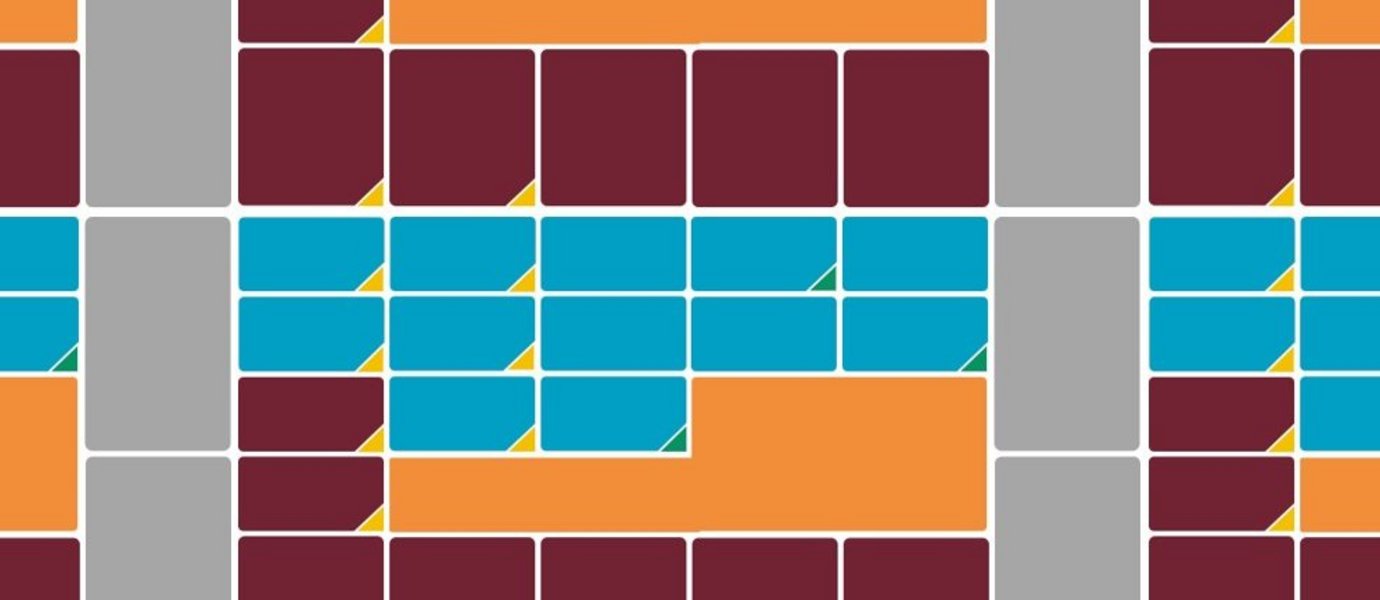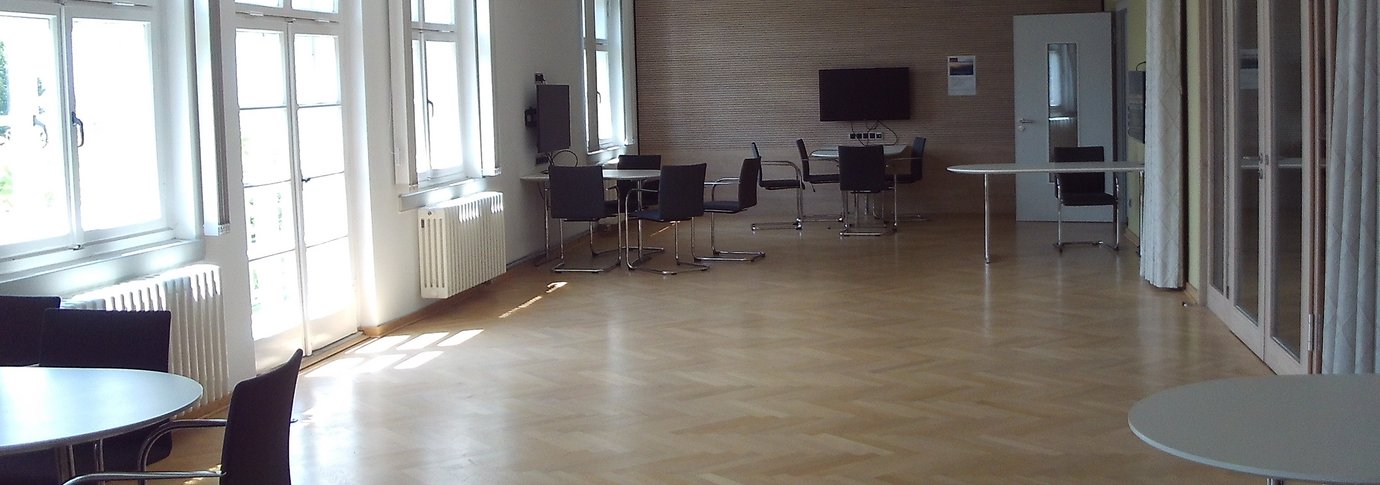Digital Technologies
Do you want to create digital transformation through sustainable innovations?
Our Digital Technologies degree programme offers a combination of deep theoretical knowledge, e.g. in software development, artificial intelligence and data analysis, with practical application and teamwork in interdisciplinary projects and it trains problem-solving thinking. Specific cooperation with leading companies in the degree programme Digital Technologies with practical cooperation offers additional practical relevance.
Our Computer Science Bachelor's degree programmes
Digital Technologies - Computer Science - Business Computer Science
Facts at a glance
How does the application process work?
Application periods (exceptions with uni-assist):
For winter (fall): 15th May - 15th July
Details of the degree programme
Fields of activity
Job profile Digital Technologies
- Software development for digital applications
- Recognising trends and supporting decisions with data analysis
- Planning and managing IT projects with agile project management methods
Programme content
Important module contents
Computer Science
- Programming techniques with Python and JAVA
- Internet of Things(IoT), Cyber Physical Systems (CPS)
- Model-based system development
- Database systems, security and privacy
- Robotics and machine learning
Mathematics
- Computational mathematics
- Stochastics and statistics
- Optimisation methods
Digital Technologies is a cross-university degree programme in cooperation with Clausthal University of Technology. Lectures take place at Ostfalia, TU Clausthal and in Goslar.
Fields of application
- Autonomous systems
- Circular economy and environmental technology
- Digital transformation
- Energy
- Industry 4.0
- Mobility
Interdisciplinary digitalisation projects
In interdisciplinary teams, you will develop digital solutions for real challenges, solutions that are not only innovative, but also future-orientated and sustainable. You will have the opportunity to transfer your theoretical knowledge directly into practical applications.
Learning in practice
Theory and practice
Practical learning combines academic knowledge with real-life applications and is a key component of modern degree programmes. Practice-orientated teaching methods such as case studies, project work and simulations give students the opportunity to put theoretical concepts directly into practice. This not only promotes a deeper understanding of the course content, but also the development of problem-solving and decision-making skills.
Another advantage of practical learning is the close cooperation with companies and organisations. Internships, student traineeships and projects in co-operation with industry offer valuable insights into the world of work and help students to make valuable contacts. This practical experience not only strengthens career opportunities, but also personal development by promoting initiative and the ability to work in a team.
On the Bachelor's degree programme in Digital Technologies, the Bachelor Project is partly or fully completed in a company.
After the Bachelor
Study plan
1. Semester Mathematical Foundations for Digital Technologies I (Discrete Structures) (1. Semester) Course content: Logic; sets; relations and functions; combinatorics; algebraic structures; number theory and modular arithmetic; basics of graph theory
Basics in Computer Science (1. Semester) Course content: Programming language Python; imperative control structures, functions, data types; modelling of problems; general learning and solution strategies in computer science; development tools
Project Management and Creative Techniques (1. Semester) Course content: Basic concepts of project management; project process organisation, structure and roles; necessary framework conditions for project initiation (resources, budget, deadlines, etc.); project implementation, controlling and reporting during project execution and project completion; communication, moderation and presentation in the project; special methods and procedures in project execution, such as estimation procedures, Kanban, retrospectives, reviews; dealing with requirements and changes; SCRUM
The Limits to Growth - Sustainability and the Circular Economy (1. Semester) Course content: Basics of climate change, environmental pollution, and dwindling non-renewable resources; Introduction to the circular economy, sustainability, and related concepts (biocapacity, etc.); Sustainability goals; Feedback loops and tipping points; Implications of closed systems with a finite supply of resources; Technology-focused and technology-critical approaches towards sustainability; Circular Societies
Digitalisationproject 1: Programming (1. Semester) Course content: In terms of content, students work independently on current practical issues relating to digitalisation. The course content primarily includes learning and applying the knowledge from the first semester, e.g. programming in Python and project management. At the end of the semester, all results of the project should be presented in a suitable form for the specific semester and role.
Mathematical Foundations for Digital Technologies I (Discrete Structures) (1. Semester) Course content: Logic; sets; relations and functions; combinatorics; algebraic structures; number theory and modular arithmetic; basics of graph theory
Course content: Logic; sets; relations and functions; combinatorics; algebraic structures; number theory and modular arithmetic; basics of graph theory
Basics in Computer Science (1. Semester) Course content: Programming language Python; imperative control structures, functions, data types; modelling of problems; general learning and solution strategies in computer science; development tools
Course content: Programming language Python; imperative control structures, functions, data types; modelling of problems; general learning and solution strategies in computer science; development tools
Project Management and Creative Techniques (1. Semester) Course content: Basic concepts of project management; project process organisation, structure and roles; necessary framework conditions for project initiation (resources, budget, deadlines, etc.); project implementation, controlling and reporting during project execution and project completion; communication, moderation and presentation in the project; special methods and procedures in project execution, such as estimation procedures, Kanban, retrospectives, reviews; dealing with requirements and changes; SCRUM
Course content: Basic concepts of project management; project process organisation, structure and roles; necessary framework conditions for project initiation (resources, budget, deadlines, etc.); project implementation, controlling and reporting during project execution and project completion; communication, moderation and presentation in the project; special methods and procedures in project execution, such as estimation procedures, Kanban, retrospectives, reviews; dealing with requirements and changes; SCRUM
The Limits to Growth - Sustainability and the Circular Economy (1. Semester) Course content: Basics of climate change, environmental pollution, and dwindling non-renewable resources; Introduction to the circular economy, sustainability, and related concepts (biocapacity, etc.); Sustainability goals; Feedback loops and tipping points; Implications of closed systems with a finite supply of resources; Technology-focused and technology-critical approaches towards sustainability; Circular Societies
Course content: Basics of climate change, environmental pollution, and dwindling non-renewable resources; Introduction to the circular economy, sustainability, and related concepts (biocapacity, etc.); Sustainability goals; Feedback loops and tipping points; Implications of closed systems with a finite supply of resources; Technology-focused and technology-critical approaches towards sustainability; Circular Societies
Digitalisationproject 1: Programming (1. Semester) Course content: In terms of content, students work independently on current practical issues relating to digitalisation. The course content primarily includes learning and applying the knowledge from the first semester, e.g. programming in Python and project management. At the end of the semester, all results of the project should be presented in a suitable form for the specific semester and role.
Course content: In terms of content, students work independently on current practical issues relating to digitalisation. The course content primarily includes learning and applying the knowledge from the first semester, e.g. programming in Python and project management. At the end of the semester, all results of the project should be presented in a suitable form for the specific semester and role.
Useful links and files
Do you still have questions?
Our Central Student Advisory Service (ZSB) will be happy to support you!
Building Am Exer 45, Room 101 -105
availability by phone:
Monday, Tuesday and Wednesday: 9:00 AM - 3:30 PM
Thursday: 1:00 PM - 3:30 PM
Friday and before holidays: 9:00 AM - 12:00 PM

